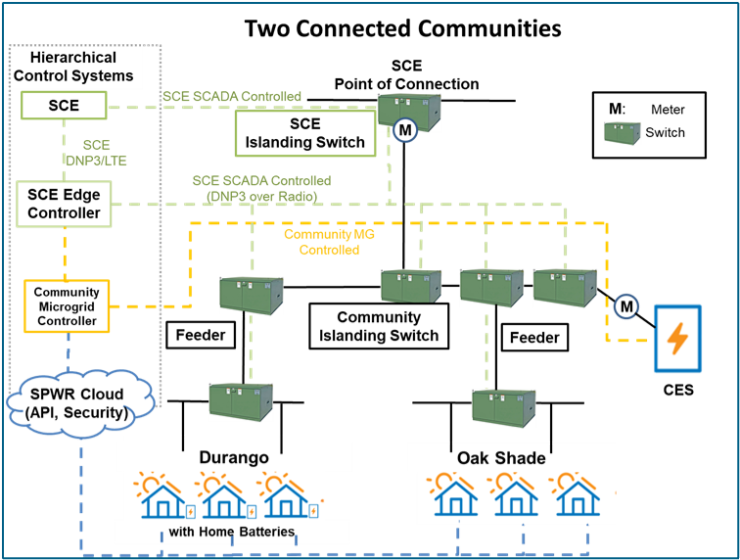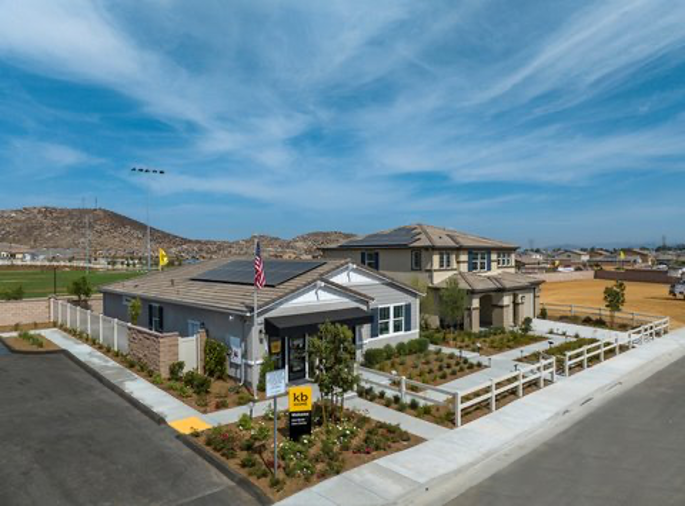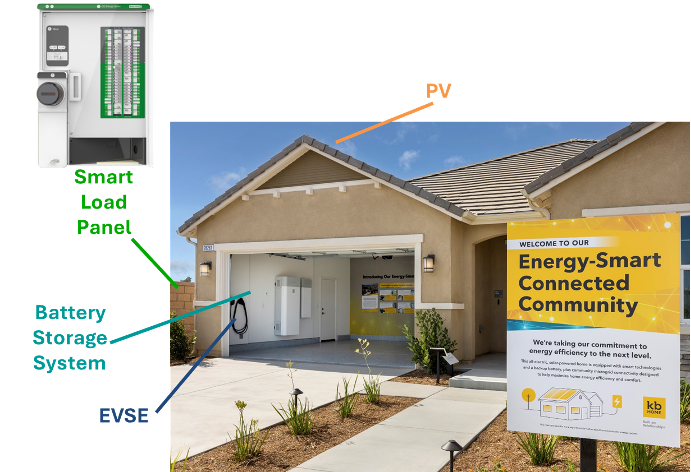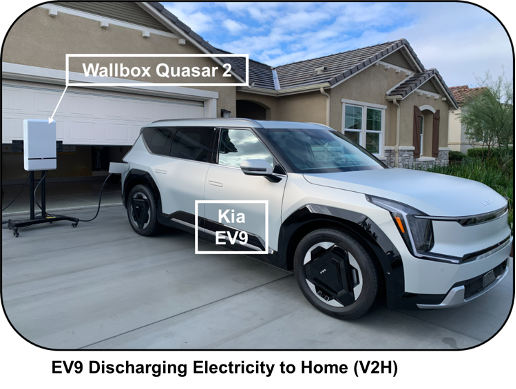Connected Residential Communities with Enhanced Resiliency and both Customer and Utility Attributes
This project represents two residential communities that will integrate existing commercial technology including nested microgrids, will be all-electric and meet DOE zero energy ready homes criteria. An important goal for this project is to demonstrate reliability and resilience, cost-effectiveness, and benefits to customers and the utility from Connected Community microgrids. The planned community-scale battery will serve to support both Connected Communities in island mode to meet critical loads and also potentially provide a service to the grid during extreme weather events with up to 500 kW available to the utility. The team hopes to demonstrate a shift from natural gas end-uses to high efficiency all-electric technologies.
KB Homes
University of California Irvine
Schneider Electric
Southern California Edison
Rooftop PV (5-7kW each or 1.4MW total), community energy storage (CES) battery (1 MW/2 MWh), residential energy storage battery units (RESU) (6.8 kW /13 kWh per home), EV charging infrastructure (EVCI).
Provision of 200-700kW of flexible loads in the form of heating ventilation and air conditioning, water heaters, EVs (including possible bidirectional flow), smart appliances (dishwashers, washer/dryer)
Variable renewable energy integration, resilience with coordinated islanding, & avoided capital investment at the grid (T&D)
Capacity relief from demand response, emergency load transfer capability, voltage and frequency regulation, as well as exploring possible participation in California ISO day-ahead real-time and ancillary service markets with DERs >500kW



